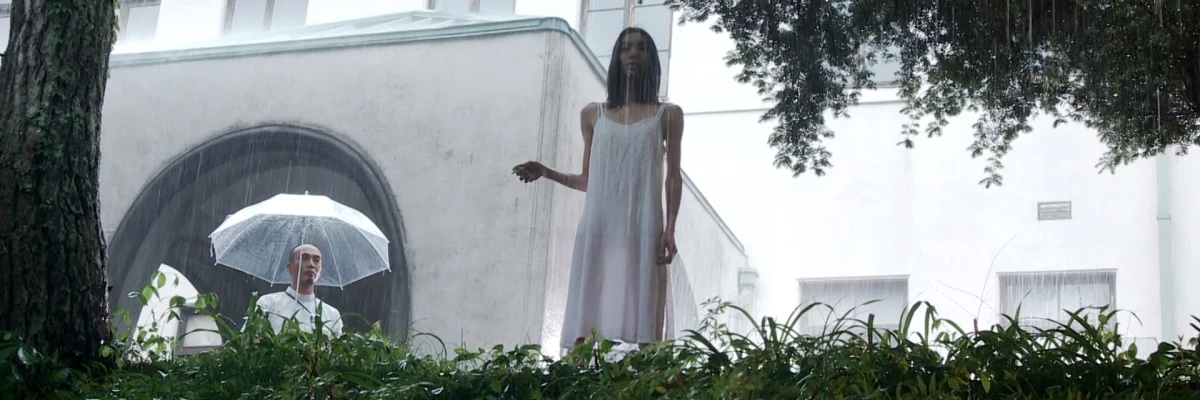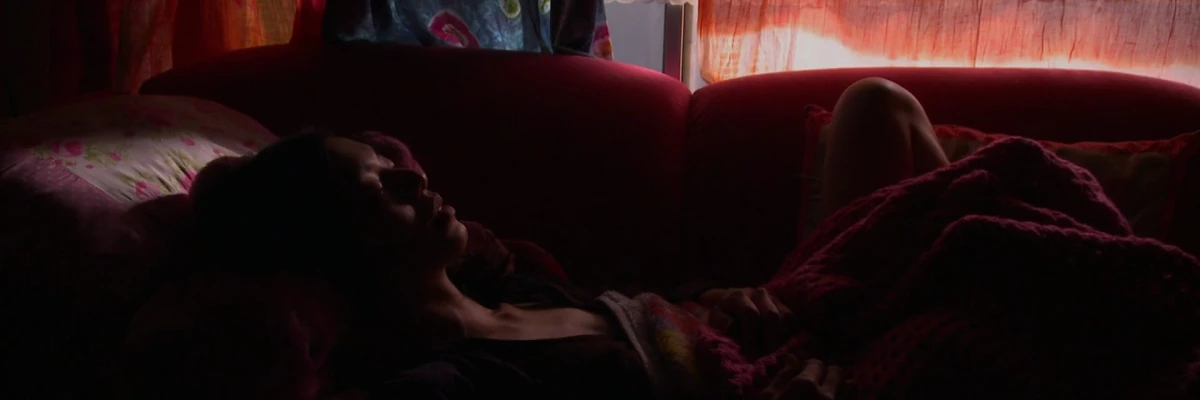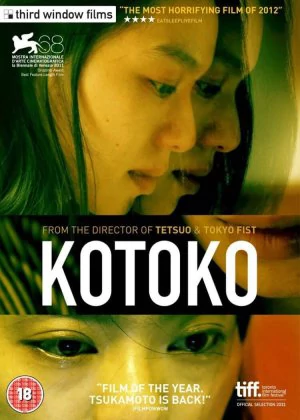Kotoko
Shinya Tsukamoto is back. For his latest film, Kotoko, he revisits the style he started to explore in Vital, mixes it up with the finale of Haze and the scare tactics of the first Nightmare Detective film, and throws things around by putting a very strong focus on drama. The result is an all-round Tsukamoto affair up there with the best he ever produced, but noticeably different from his earlier work.

Tsukamoto adepts be warned, because at Kotoko's core lies an actual full-fletched drama. Not that drama is a new thing in Tsukamoto's oeuvre, but before Kotoko, drama always came second to more genre-specific elements. This time he's turning the balance around. Even though the film is still overflowing with typical Tsukamoto weirdness, the drama takes center stage. On paper, the difference may sound negligible but you feel the shift in focus while watching Kotoko.
This shift challenges quite a few drama-clichés. Subtlety and room for interpretation are two things people always push forward to describe good drama films, but there's none of that in Kotoko (at least not superficially). Tsukamoto's style is still intact, meaning the camera work can get just as nasty and hectic as in his earliest films. Even the soundtrack contributes as one of the most hellish ones Tsukamoto ever used for one of his films. If you sit down expecting a regular drama, expect to be seriously disappointed.
Kotoko is a young mother battling some very serious mental issues. At the start of the film, she is just suffering from a weird affliction that makes her see people twice. She may act a little weird but she is mostly harmless to her surroundings. Soon enough her condition becomes worse and she is deemed a hazard to the health of her baby boy. The baby ends up with Kotoko's sister, further increasing Kotoko's misery, but when she finally meets up with a new man her mental issues appear to subside little by little.

Visually Tsukamoto goes all-out digital, with no concessions made. He applies a hand-held style that puts the Dogme movement to shame (well, not really because it's so stylized it couldn't be counted as a Dogme film) but it's clear that there is still some kind of control behind all the visual madness. It's not just random hectic camera work, it really helps with bringing out the mental state of Kotoko. In between Tsukamoto still finds room for more classically stylized shots but while I still consider this film as visually intense as his other films, the entire look is far rawer and more unpolished.
The soundtrack goes even beyond. Loud and noisy, it's the exact opposite of what you'd expect from a soundtrack composed for a film like this. At times the music is just noise and distortion with some enlarged sound effects, really underlining the fragile state Kotoko is in. Tsukamoto alternates with a couple of songs sung by Kotoko, and even though they appear more delicate and subtle, they never really put the viewer at ease. Definitely one of the strongest soundtracks I've ever encountered in a Tsukamoto film (and he's had quite a track record so far).
The acting too is intense. Cocco (a real-life Japanese artist) was the inspiration for the Kotoko character which does make things a little easier for her, then again it's the first time she acted in a live-action feature and her role was far from a breeze. She really carries the film though, throwing herself completely at her character and covering her emotions with passion. Tsukamoto himself turns up around the halfway mark of the film but only fulfills a smaller role. The rest of the secondary cast is hardly noticeable but they do a pretty decent job nonetheless.

The middle part of Kotoko is a bit calmer for a typical Tsukamoto film, but the start and finish are every bit as manic and intense as you'd hope them to be. There are some very insane and original scenes tucked away in here, most notably a very simple cooking scene which Tsukamoto turns into a regular task from hell. The intensity of that scene is so overpowering that you can't help but think Tsukamoto is really onto something here. It's these moments that really set the film apart and turn it into a truly unique experience.
Kotoko is another work of love. Tsukamoto did almost everything himself, though he also credited Cocco for more than just the acting (she also gets production design credits and she served as the film's main inspiration). The result is a very powerful and gut-wrenching drama. Being a Tsukamoto film, it may lack subtlety but makes up for that with sheer emotional and visceral prowess. Tsukamoto fans should brace themselves for a slight but far-stretching change in tone, though it hardly affects the overall quality of the film, instead it only shows that Tsukamoto can retain his style with success even when he sidesteps to new genres.
